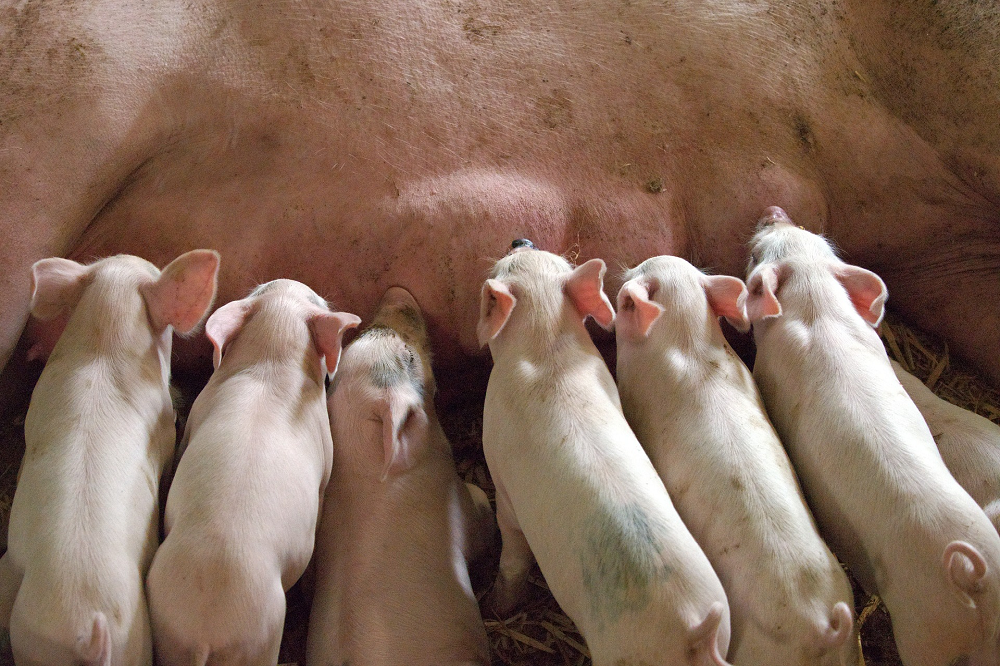How do we prevent bacterial infections and reduce the need for antibiotics? researchers Wageningen University & Research and universities in Denmark and the United States are uniting in a new project: PIG-PARADIGM. Novo Nordisk Foundation is financing the project with €20.1 million.
The third leading cause of death
Global use of antibiotics is increasing, a major cause of antimicrobial resistance (AMR). The World Health Organization predicts that antimicrobial resistance will become the third leading cause of death worldwide within 30 years. Pig production is a major global consumer of antibiotics.
In this new project, comprehensive data – collected by studying pigs – is analyzed in detail by researchers in Wageningen, Denmark – Aarhus University, University of Copenhagen and Aalborg University – and the University of California, Davis, in the US. Collaboration across institutions and borders brings together the necessary expertise, techniques, and animal studies to find new solutions to this problem.
pig intestine research
Like humans, pigs develop a complex gut microbiome soon after birth. Many piglets develop diarrhea only at weaning. This is when they are separated from the pig and adapted to a new environment and diet. The pigs then become susceptible to intestinal infections. Antibiotics are necessary to prevent disease transmission and the suffering and death of piglets.
“At PIG-PARADIGM we gather knowledge on how to increase the pig’s gut’s natural defenses and immunity. If this improves, it reduces diarrheal illness and therefore the need for antibiotics,” said coordinator, Charlotte Lorissen, Professor and Head of the Department of Animal Sciences at Aarhus University.
Basic information
Antibiotics are used to treat or prevent certain types of bacterial infections, for example in the respiratory or digestive tracts of humans and pigs. The current excessive use of antibiotics leads to the development of resistant bacteria and thus causes a lack of antibiotic efficacy. In the worst case, this leads to the possibility of treating bacterial infections. Currently, more than 700,000 people die each year from infections that are resistant to most or all antibiotics and the number is increasing. New approaches to preventing common infections can help reduce the need for antibiotics and reduce the spread of antibiotic resistance.
Immunity development
Antibiotics are designed to kill or reduce the growth of bacteria that makes pigs sick, but they can also eliminate the normal gut microbiome, which is important for developing immunity at a young age. At PIG-PARADIGM, researchers will investigate how parts of the gut microbiome interact, including bacteria, fungi, archaea and viruses, and whether changes in food composition or the environment affect the gut microbiome. This reduces the need for antibiotics and avoids antimicrobial resistance.
Combined different experiences
At PIG-PARADIGM, Hauke Smidt, personal chair in the Microbiology Laboratory and Scientific Director of UNLOCK Research Infrastructure at WUR, joins researchers from Host-Microbe Interactomics, Systems and Synthetic Biology and Livestock Research at Wageningen.
Smidt: “This exciting project with a unique combination of expertise opens up entirely new avenues for us to decipher the interactions of a developing pig, its diet, and gut microbiome, and transfer this knowledge into healthier pigs.”
ABOUT THE PIG-PARADIGM PROJECT
- The project is called Preventing Infections in the Gut when Pigs develop—and thus antimicrobial resistance—by separating the interface of the DIEt, host, and gastrointestinal microbiome (PIG-PARADIGM).
- The duration of the project is five years: from 2022 to 2027.
- The Novo Nordisk Foundation makes the research possible with a grant of 150 million DKK.
- The five main parties in the project are; Wageningen University and Research, University of Aarhus, University of Copenhagen, University of Aalborg in Denmark and University of California, Davis in the United States.
source: WUR

“Total coffee specialist. Hardcore reader. Incurable music scholar. Web guru. Freelance troublemaker. Problem solver. Travel trailblazer.”






More Stories
NASA Relief: 46-year-old Voyager 1 space probe no longer delivers gibberish to Earth
Dykstra advises parents to vaccinate their children against measles
Japan wants to generate solar energy in space and return it